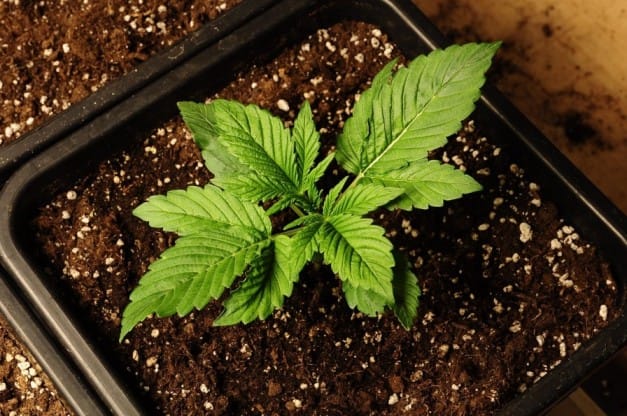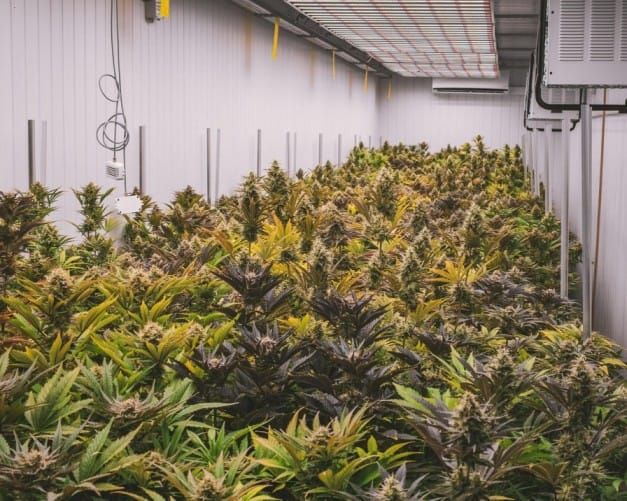Hemp cultivation in India is gaining momentum as farmers, entrepreneurs, and environmentalists realize its potential. Once deeply rooted in Indian culture and Ayurveda, industrial hemp is making a comeback — this time as a solution for sustainable farming, economic growth, and eco-friendly industrial development.
In this guide, you’ll discover everything you need to know about hemp in India — from licensing and legality to agronomic practices, economic opportunities, and sustainability benefits.
What Is Hemp? Is It the Same as Cannabis or Marijuana?
Hemp is a variety of the Cannabis sativa plant species. However, it is non-psychoactive and contains less than 0.3% THC, the compound responsible for the “high” in marijuana.
| Term | Meaning |
|---|---|
| Cannabis | The plant species that includes hemp and marijuana |
| Hemp | Low-THC variety used for industrial products (fibers, seeds, oil) |
| Marijuana | High-THC variety used for recreational/medical use |
| Hashish | Concentrated resin from cannabis, rich in THC |
What Is Hemp Called in India?

| Language | Common Name |
|---|---|
| Hindi | Bhaang |
| Marathi | Bhaang |
| Punjabi | Vijaya, Bhaang |
| Bengali | শণ (Shon), ভাং (Bhang) |
| Tamil | சணல் (Chanal) |
| Kannada | ಸೆಣಬು (Sennabu) |
| Gujarati | Bhaang |
| Odia | Bhaang |
In Ayurveda, hemp is known as “Vijaya”, valued for its medicinal and calming properties.
Is Hemp Legal in India?
Yes — with conditions.
Under the Narcotic Drugs and Psychotropic Substances Act, 1985, industrial hemp is legal to grow in India if the THC content is below 0.3%.
States Allowing Legal Hemp Cultivation
| State | Legal Status | Licensing Authority |
|---|---|---|
| Uttarakhand | ✅ Legal | Excise Dept. + IIHA |
| Uttar Pradesh | ✅ Legal (pilot) | State Govt + Agricultural Dept. |
| Madhya Pradesh | ✅ Legal (restricted) | State Licensing Board |
| Himachal Pradesh | ✅ Legal (in progress) | Agriculture Department |
| Jammu & Kashmir | ✅ Legal | State Council |
More states are expected to legalize hemp cultivation as awareness and demand grow.
How to Get a Hemp Cultivation License in India
Step-by-Step Licensing Process:
- Research local regulations in your state (start with the Agriculture or Excise department).
- Register your land and farming intent.
- Submit documents including land records, identification, and THC compliance intent.
- Site inspection and approval by officials.
- Monitoring throughout crop life to ensure THC < 0.3%.
✅ Tip: Partnering with certified hemp cooperatives or startups can streamline licensing and marketing.
Best Climate and Regions for Hemp Cultivation in India
Hemp thrives in temperate to subtropical climates with well-drained soil. India’s diverse agro-ecological zones offer prime growing conditions.
Top States for Hemp:
- Uttarakhand – Pioneered legal cultivation
- Himachal Pradesh – Ideal altitude & climate
- North East (Assam, Manipur) – High rainfall regions
- Madhya Pradesh – Expanding cultivation initiatives
- Jammu & Kashmir – Traditional hemp-growing region
Agronomic Practices for Hemp Farming
| Parameter | Recommendation |
|---|---|
| Sowing Time | February–March or June–July |
| Seed Rate | 25–30 kg/ha |
| Spacing | 15–30 cm between plants |
| Fertilization | Organic-rich soil; split NPK applications |
| Weed Control | Manual + selective herbicides (e.g., Quizalofop) |
| Irrigation | Moderate; avoid waterlogging |
| Harvesting | Depends on use: seed maturity or fiber shedding |
Nutritional and Industrial Value of Hemp

Nutritional Benefits of Hemp Seeds:
- Complete Protein (20–25%) with all essential amino acids
- Omega-3 & Omega-6 fatty acids (3:1 ideal ratio)
- Dietary Fiber (20–30%)
- Vitamins & Minerals: Mg, Fe, Vitamin E, Zinc
- CBD (Cannabidiol): Non-psychoactive; used for pain, anxiety, epilepsy
Industrial Uses of Hemp:
| Product | Application Areas |
|---|---|
| Fiber | Clothing, textiles, bags, paper |
| Seeds | Superfood, oil, flour, protein powders |
| Oil | Skincare, cooking, dietary supplements |
| Biofuel | Biomass energy, ethanol |
| Hempcrete | Sustainable construction (bricks, insulation) |
| Bioplastics | Eco-friendly packaging, disposables |
Environmental Benefits of Hemp
- ✅ Low Water Use – 50% less than cotton
- ✅ No Need for Pesticides – Natural pest resistance
- ✅ Carbon Sequestration – High biomass absorption rate
- ✅ Phytoremediation – Absorbs heavy metals (Pb, Cd, Ni)
- ✅ Improves Soil Health – Adds organic matter and aerates roots
Current Research and Innovation
- CSIR & ICAR: Hemp fiber quality improvement
- IIT Delhi: Developing hemp-composites for lightweight structures
- NEH Region ICAR Labs: Soil health and biochar conversion
- Uttarakhand Pilot Projects: Commercial farming, policy development
Hemp Oil in India – Is It Legal?
Yes, hemp oil is legal if extracted from seeds and contains less than 0.3% THC. It is widely used in:
- Skin moisturizers
- Anti-inflammatory balms
- Edible oils
- Hair and body care products
Hemp vs Cotton – Sustainability Faceoff
| Factor | Hemp | Cotton |
|---|---|---|
| Water Usage | Low | High |
| Pesticides | Rarely needed | Heavily required |
| Yield per Acre | High (fiber + seed) | Moderate |
| Soil Health | Improves | Depletes |
| Lifecycle | 90–120 days | 150–180 days |
Hemp FAQs
1. Can I grow hemp in India?
Yes, but only in states where it is legally approved and under license. You must maintain THC content below 0.3%.
2. Is hemp the same as marijuana?
No. Hemp has negligible THC and is used for industrial purposes. Marijuana has high THC and causes intoxication.
3. Is hemp oil legal in India?
Yes, as long as it’s from seeds and THC levels remain below 0.3%.
4. What are the main uses of hemp?
Fiber, seeds, oil, building materials, biofuel, nutraceuticals, and eco-friendly packaging.
5. How profitable is hemp farming?
Hemp can yield income from both seeds and fiber. Returns vary by state policy, licensing, and market access.
Final Thoughts: Why Hemp is India’s Future Crop
Hemp offers a triple-win opportunity:
- Environmentally sustainable
- Economically viable for farmers and startups
- Industrially versatile
As India transitions toward a green economy, hemp could become a flagship crop, generating jobs, conserving resources, and producing thousands of useful products.
🔍 Want to grow hemp? Begin with state-specific regulations and contact your local agriculture department.
Read more- Cotton Cultivation in India: A Comprehensive Guide for Farmers
📚 Source:
Biswakarma, N., Tripathi, K., Arya, S., & Harshang, T. (2023). Industrial Hemp in India: A Booming Botanical Wonder with Endless Potentials. Food and Scientific Reports, 4(10), 60–67.
Read the original paper
Shivank patyal is a versatile blogger with a B.Sc. in Plant Biotechnology and 5 years of experience writing about agriculture, sustainability, and entertainment topics. With expertise in digital marketing and field experience in crop cultivation, Shivank provides practical insights for farmers while also engaging readers with content on diverse subjects. Passionate about sharing knowledge, Shivank combines education and creativity to connect with a wide audience.

Leave a Reply to Opium Cultivation in India: History, Law, and Modern-Day Issues - Cropscultivation Cancel reply